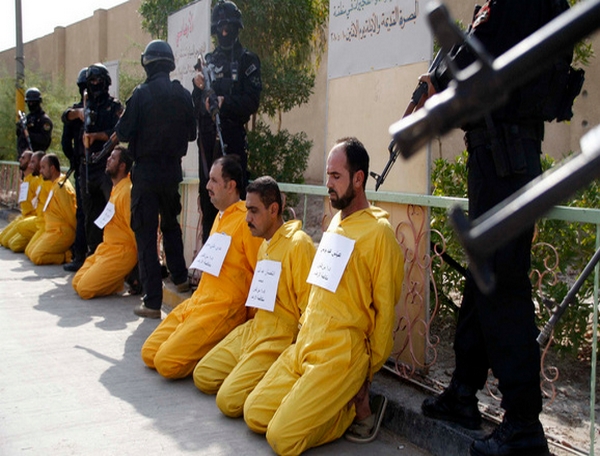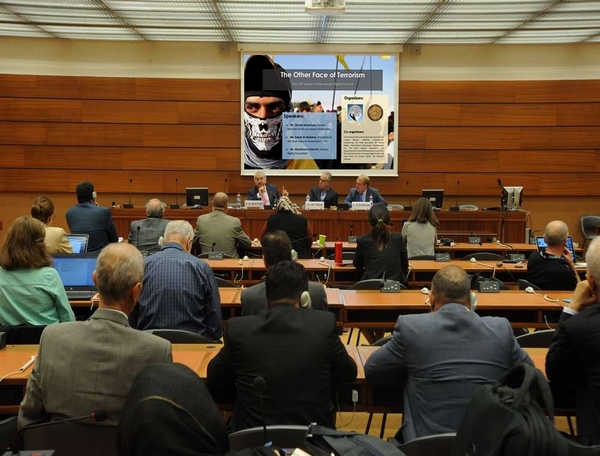A Mid-Term implementation assessment reveals that the Iraqi authorities have not yet implemented most of the 179 recommendations that was approved during the Universal Periodic Review of Iraq in 2010.
The Universal Periodic Review (UPR) is a mechanism of the Human Rights Council to observe the human rights situation in the different countries. On the 16th February 2010, Iraq was examined by the UPR and 179 recommendations were made by representatives of United Nations’ member states in order to improve the alarming human rights situation in Iraq.

In 2012, UPR Info (an NGO based in Geneva) organized a Mid-Term Implementation Assessment (MIA) to check how Iraq pursues its commitments and implements the accepted recommendations. To conduct this evaluation, UPR Info contacted states, UN agencies and NGOs, to participate in the MIA. 49 stakeholders, among them16 NGOs took part in this evaluation.
The Mid-Term Implementation Assessement shows that, two years after the UPR, the Iraqi authorities have not implemented 100 of the 179 recommendations, and have not answered 25 recommendations. Although the assessment reports that 14 recommendations were fully implemented and 27 partially implemented, GICJ does not fully agree with that.
Bellow is a summary of the feedback provided by GICJ on several issues related to the UPR implementation by Iraq:
Freedom of expression and protection of the press: although the Journalist Protection Law was passed in August 2011, it does not comply with international standards and lacks of protection for media professionals.
Rights to life, liberty and security and respect for the rule of law: the security forces and militias of political parties of the current government threaten the right to life. The rule of law is not respected by the government institutions.
Educational system: illiteracy and dropout rates have been increasing since the deliberate destruction of the educational system in 2003. If at the end of the 1970s the literacy rates of Iraq were among the best in the region, they are very poor now and there is no national program to eradicate the current high illiteracy rate.
Healthcare: healthcare provisions remain a serious concern as the health system has been destroyed; the number of health professional and the medical equipment are insufficient.
Millennium Development Goals (MDG): Iraq is not in the position to meet any of the development goals and has no plan regarding this issue.
Human rights treaties, conventions and protocols: Iraq must ratify the Convention Against Torture CAT and Geneva Convention protocols as well as the statute of the International Court of Justice.
United Nations Special Procedures: the Iraqi authorities have never extended a formal invitation to the Special Procedures. Furthermore, they have employed various obstacles to delay or prevent the visit of the Special Rapporteur on Torture.
Death penalty: the reliance of Iraqi authorities on death penalty is increasing. More than 110 cases were announced for the year 2012. The majority of those condemned to death penalty have been deprived of fair trials or/and legal representation. The Iraqi authorities do not intend to abolish the death penalty or to halt the executions, neither to reduce the scope of acts subject to this sentence. Death penalty is also used as a tool to silence political opposition.
Accountability: the Iraqi government and authorities lack of will to hold those responsible for crimes accountable and to put an end to the state of impunity.
Treatment of detainees and detention facilities: the mistreatment of detainees is common and severe, including various forms of torture, which is used to extract confessions. The lack of adequate centralized supervision system prevents transparency of the sentences. GICJ reported that the majority of those charged with a crime have been deprived of the right to fair trial and/or legal representation. In addition to the rampant corruption, there is no mechanisms to ensure the quality and speed of judiciary process.
Torture: torture is an accepted and common practice in the Iraqi prisons, where it is used to extract confessions. There is no credible investigation, no one is hold accountable, and thus no victim ever receives any compensation.
Journalists and human rights defenders: Iraqi authorities continue to threaten human rights defenders. Freedom of press is not respected and journalists are exposed to acute risks, including murder.
Women: despite the constant deterioration of the situation of Iraqi women, no attempt has been made to improve it. Women are victims of various forms of violence, including human trafficking and sexual violence. There is no legal protection for women victim of violence and thus no accountability for the perpetrators of these violences. Furthermore, the diminution of the right of women has dramatically impacted their lives.
Internally Displaced Persons: the means at their disposition to fulfill their basic human needs remain insufficient, which place them in very precarious situation, especially women and children.
Independent High Commission for Human Rights IHCR and cooperation between human rights mechanisms: an Independent High Commission for Human Rights exists in Iraq, but is not yet functioning. No effective collaboration between the different human rights mechanisms has been acknowledged by GICJ.
Human rights: since 2003, the Iraqi people have been deprived of their basic human rights. The political, economic, social and cultural rights are inexistent and the necessary infrastructure to meet the needs of the population, in terms of water, electricity and basic necessities, has been damaged or destroyed.
Participation of GICJ at Human Rights Council Sessions
Human Rights Council - 35th regular session (6 June - 24 June 2017)
Human Rights Council - 34th regular session (27 February - 24 March 2017)
Human Rights Council - 33rd regular session (10 September - 30 September 2016)
Human Rights Council - 32nd regular session (13 June - 1 and 8 July 2016) Human Rights Council - 31st regular session (29 February - 24 March 2016)
Human Rights Council - 30th regular session (14 September - 2 October 2015) Human Rights Council - 29th regular session (15 June - 3 July 2015) Human Rights Council - 22nd special session on the human rights situation in Iraq in light of abuses committed by the Islamic State in Iraq and the Levant and associated groups - 1 September 2014: Human Rights Council - 21st special session on the human rights situation in the Occupied Palestinian Territory, including East Jerusalem - 23 July 2014: Human Rights Council - 26th regular session (10 - 27 June 2014): Human Rights Council - 25th regular session (3 - 28 March 2014): Human Rights Council - 24th regular session (9 - 27 September 2013): Human Rights Council - 23rd regular session (27 May - 14 June 2013): Human Rights Council - 22nd regular session (25 February - 22 March 2013): Human Rights Council - 21st regular session (10 - 28 September, 5 November 2012): Human Rights Council - 19th regular session (27 February - 23 March 2012): |
||
Documenting and reporting human rights violations in Iraq
| Executions | Human Rights Violations in the context of fight against terrorism | Peaceful protests | ||||
 |
 |
 |
||||
 |
 |
 |
||||







